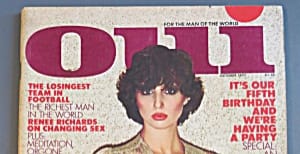Mark’s book review time: Burning Down the Haus :
Punk Rock, Revolution, and the Fall of the Berlin Wall by Tim Mohr (2018)
Five months ago, I wouldn’t have guessed I’d read a
book about punk rock in East Germany. Ten days in December absorbing Radebeul,
Dresden, and Leipzig led me, upon our return home, to the Radio GDR podcast.
The Radio GDR podcast led me to this book, and it opened a door to a hidden
history of which I was completely unaware.
In the late ‘70s, punk rock magazines smuggled into
East Berlin from West Berlin sparked what eventually became a movement. East
German youth (not all of them, but enough of them) were stifled by the
oppressive Erich Honecker dictatorship. As author Tim Mohr writes, unlike the
British punk slogan of “No Future” under the Thatcher regime, the problem
facing East German youth was “too much future.” Everything, including
educational opportunities and employment, was already mapped out for them.
Burning Down the Haus: Punk Rock,
Revolution, and the Fall of the Berlin Wall tracks the East
German punk movement from 1978 up through the fall of the Berlin Wall in
November 1989 and reunification the following year. Though young people were
attracted to the music for the energy and fun it provided, it was also a
vehicle in which creative and outspoken iconoclasts could express their
dissatisfaction with the GDR regime. Throughout the book, Tim Mohr introduces
the reader to a variety of East German punk bands, including Wutanfall (which
translates to “Tantrum”), Planlos (“Aimless”), Namenlos (“Nameless”), and
Feeling B (aka Feeling Berlin).
Punks and punk bands in East Germany had to defy and
overcome several obstacles; their unorthodox hairstyles and clothing choices
made it difficult to hold down jobs, and not being able to keep a job meant
possible imprisonment; East German musicians needed an official license to
perform at clubs and festivals, and most punk bands were unable to obtain these
(for reasons that are probably obvious—more about this later); the Stasi
(Ministry for State Security) viewed punk as a direct threat to the status quo,
so interrogation, intimidation, and imprisonment were also tactics used to
stifle the movement.
In East Germany, the churches were granted freedom
from government oversight, and thus became places of refuge where dissenters
and free-thinkers could express ideas and perform
anti-authoritarian/anti-government music without a performance license and
without fear of being arrested—unless, of course, there were snitches inside
the walls of the church, and there often were. Still, churches in places like
Leipzig, Halle, and of course Berlin provided a reasonably safe haven for
punks.
Mohr makes a reasonably convincing argument that GDR
punks were on the vanguard of political change, and though initially viewed
skeptically by “regular people,” their willingness to take a stand along with
the overt violent response they endured from authorities helped turn the tide
against the GDR regime. However, the book could have been improved if a chapter
had been devoted to a view of the punk movement through the eyes of regular
East Germans.
Tim Mohr helps dispel the notion that East Germans
were driven by the desire for blue jeans and Coca-Cola, or that Ronald Reagan
declared “Mr. Gorbachev, tear down this wall!,” then snapped his fingers,
tapped his heels together, and the Berlin Wall magically collapsed. Mohr also demonstrates
how Germany wasn’t immediately improved after reunification, and in fact many
of the hopes and dreams that East German revolutionaries had were not fulfilled
after reunification.
[Sorry: I copied and pasted this and this process always seems to mess up the font].


